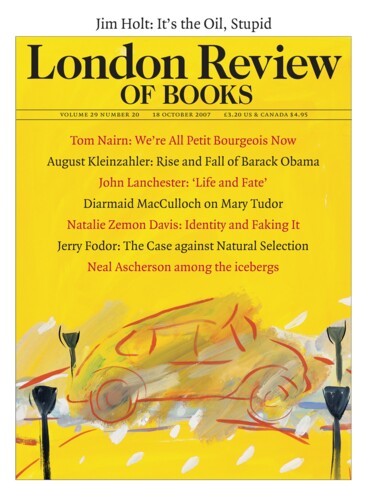Flirts, Victims, Connivers
Jerry Fodor, 11 September 2008
I’ve been told you can’t judge a book by its cover; and not by its subtitle either, it would seem. Jean Starobinski’s Enchantment presents itself as concerned with ‘the seductress in opera’, but not much of it actually is. It consists, rather, of a collection of occasional pieces, most of which have previously been published. They offer relatively impressionistic...




